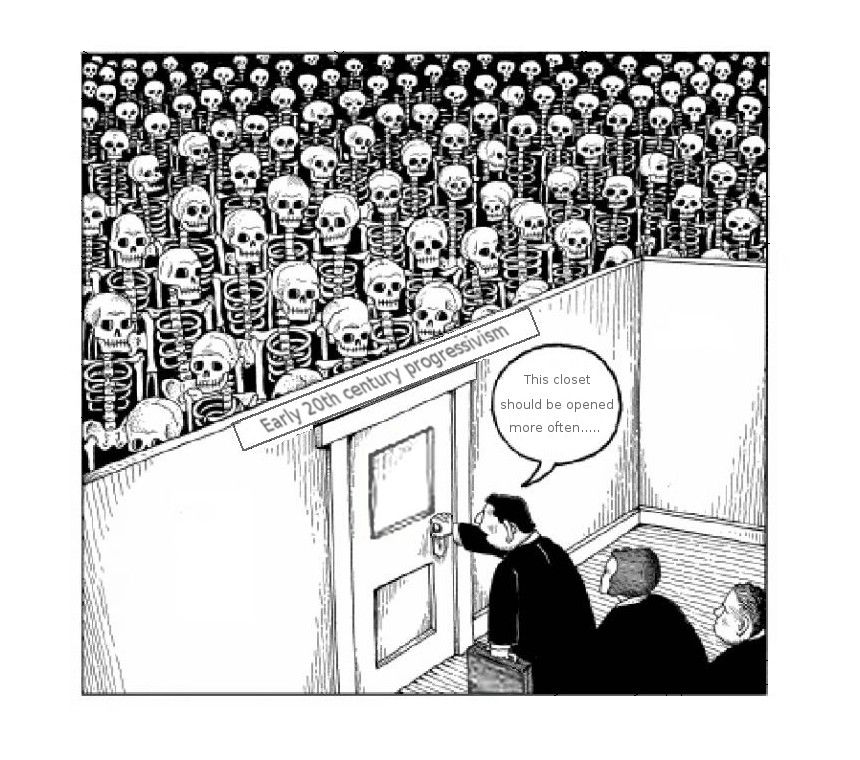
Posted on 12/13/2014 5:29:36 AM PST by ProgressingAmerica
Jim Geraghty published an interesting article the other day about 'Narrative Journalism' titled "What If the Media’s ‘Narrative Journalism’ Harms Their Own Causes? It has been widely discussed in light of what it contains, so I am going to go right for what is outside the box.
Narrative Journalism, in this context, also necessarily implies narrative protesters. The narrative being pushed by the journalist does not have to be true by any means, but to the protesters, it is very real. The challenge is that we as citizens are supposed to be able to trust the journalist establishment without fear that they are manipulating information with the primary goal of manipulating us. But that's what establishes narrative protesters. Each of these major protests fits within the narrative, and is scripted. You can see how the script plays out over and over again, it repeats itself. Yes, each protest is different, but yet each protest is the same. They follow the same template.
Just look at today's protests, compare it with yesterday's protests, with protests from last decade, and keep going backward. They all have the same structure, and all with the same goals. Don't look at the micro, look at the macro. So where does this come from?
It comes primarily from the Sacco and Vanzetti trial. Upton Sinclair knew that they were guilty. The problem here is that Upton Sinclair was a believer in the revolution - and the revolution is more holy than the truth is to the revolutionist. Sinclair had insider information that nobody else had, that if anybody else had gained this information they may have been more willing to be honest.
Well, it happened the way it happened and all we can do at this point is learn from it. First, you have the narrative packaged by members of the media - this builds up expectations. It doesn't matter that the reporting is a lie, the lie is coming from journalism so that makes it true, and people come to expect that certain things will occur because they have been told that certain facts are true. So when a verdict that they expect does not come down, the people watching get upset. They go out and protest because they think they've been lied to.
Thus, the narrative protest hits the streets.
Sadly, the people really have been lied to, but they aren't blaming the correct group. They aren't lied to by jurors. Not by judges. They aren't being lied to by congressmen, senators, or the president. The mass of the narrative protesters was lied to by the narrative that the journalists spun, and the journalists are still getting away with it even though they've been using this template for close to 100 years.
The only way to do damage to a lie so well established for so long a period of time, is to have the truth readily available and at your service. You have to know it well. You have to live it. Upton Sinclair's letter to John Beardsley is key to any attempts to break this system of Narrative Journalism and Narrative Protesting. One thing leads to the other.
Make sure you have downloaded a copy. The copy that I put online is the real thing, it even has the stamp on it. You can also access a typed transcript of that letter, here, for quick searching.

What about narrative reading, teaching, and preaching? Hillary Clinton is a product of at least the last two of these —
This statement seems such a basic truth that it should stand on its own accord. I'd propose that the truth only works with those willing to accept facts and, as your weblog article states, that has not been the case for the century we've endured the progressive movement. This conflict between the truth and the narrative must eventually be resolved. It's not likely to be pretty when that point arrives.
Isn’t the use of a ‘narrative’ part of writing fiction.....?
Thanks for the BEEP!
placemark
Disclaimer: Opinions posted on Free Republic are those of the individual posters and do not necessarily represent the opinion of Free Republic or its management. All materials posted herein are protected by copyright law and the exemption for fair use of copyrighted works.